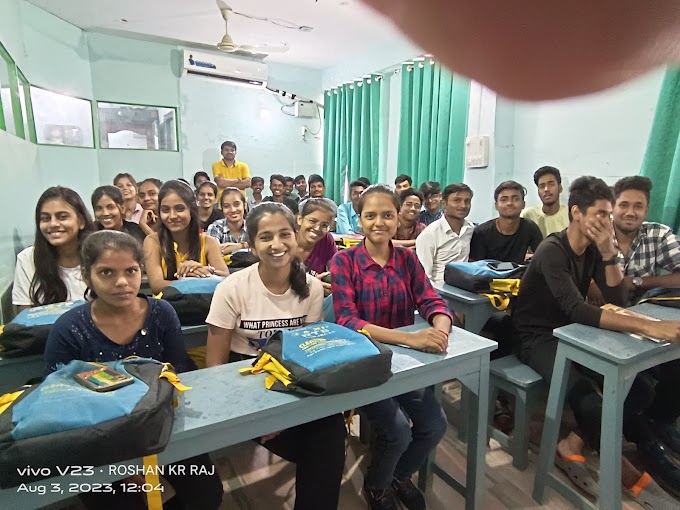Scoring high marks in arts subjects requires more than just memorization; it demands a deeper understanding and effective study strategies. As students navigate the diverse landscape of humanities, they often seek guidance to excel in their academic pursuits. In this article, we delve into proven tips curated from top arts faculty members to help students achieve maximum scores in their arts subjects.
Understanding the Importance of Arts Education:
Art subjects encompass a broad spectrum of disciplines, including literature, history, sociology, psychology, and more. While they may not always adhere to conventional grading metrics, excelling in arts subjects offers numerous benefits, including critical thinking skills, cultural literacy, and enhanced communication abilities. Therefore, mastering arts subjects goes beyond securing high grades; it cultivates a well-rounded individual capable of navigating complex societal issues and expressing themselves effectively.
Tip 1: Develop a Strong Foundation:
Building a strong foundation is essential for success in arts subjects. Begin by thoroughly understanding the syllabus and familiarizing yourself with key concepts and themes. Pay close attention to foundational texts, historical events, and influential figures relevant to your subject area. Establishing a solid groundwork early on sets the stage for deeper comprehension and critical analysis as you progress through your studies.
Tip 2: Engage Actively in Class:
Active engagement in class discussions, lectures, and seminars is instrumental in mastering arts subjects. Participate actively, ask questions, and seek clarification on concepts that may be unclear. Engaging with your peers and professors fosters a collaborative learning environment and provides valuable insights from diverse perspectives. Additionally, take diligent notes during lectures to reinforce your understanding of course material and facilitate review sessions.
Tip 3: Embrace Critical Thinking:
Critical thinking is at the core of arts education. Cultivate the ability to analyze, evaluate, and interpret information critically. When approaching assignments, essays, or exams, go beyond surface-level comprehension and delve deeper into underlying themes, contexts, and implications. Support your arguments with evidence from credible sources and construct well-reasoned arguments that demonstrate analytical rigor and originality.
Tip 4: Develop Effective Study Habits:
Effective study habits are essential for achieving academic success in arts subjects. Create a structured study schedule that allocates sufficient time for each subject while allowing for breaks and relaxation. Experiment with different study techniques, such as summarizing notes, creating concept maps, or engaging in group discussions, to find what works best for you. Additionally, utilize resources such as textbooks, academic journals, and online platforms to supplement your learning and gain diverse perspectives.
Tip 5: Seek Feedback and Revision:
Seeking feedback from professors, peers, or academic advisors is invaluable for improving your academic performance. Be open to constructive criticism and use feedback to refine your writing style, argumentation, and analytical skills. Prioritize revision and editing to polish your assignments and ensure clarity, coherence, and precision in your writing. Take advantage of office hours or tutoring services offered by your institution to address any areas of difficulty or confusion.
Tip 6: Stay Informed and Culturally Aware:
Staying informed about current events, cultural trends, and societal issues enriches your understanding of arts subjects and enhances your academic performance. Read widely across different genres, mediums, and perspectives to broaden your knowledge base and foster a deeper appreciation for diverse cultures and perspectives. Stay updated on relevant scholarly debates, artistic movements, and interdisciplinary developments to contextualize your learning within broader intellectual discourses.
Tip 7: Practice Time Management:
Effective time management is crucial for balancing academic responsibilities, extracurricular activities, and personal commitments. Prioritize tasks based on urgency and importance, and allocate sufficient time for studying, completing assignments, and engaging in leisure activities. Break larger tasks into smaller, manageable steps to avoid feeling overwhelmed, and set realistic goals to track your progress effectively. Utilize time management tools such as calendars, planners, or productivity apps to stay organized and on track.
Tip 8: Foster a Growth Mindset:
Maintaining a growth mindset is essential for overcoming challenges and continuously improving your academic performance. Embrace setbacks as opportunities for learning and growth, and view failures as temporary obstacles on the path to success. Cultivate resilience, perseverance, and self-belief in your abilities to overcome academic challenges and achieve your goals. Celebrate your achievements, no matter how small, and acknowledge the progress you've made on your academic journey.
Tip 9: Enroll in arts coaching center in patna
Enroll in an arts coaching center in Patna that offers specialized guidance and support tailored to the curriculum and examination patterns of your arts subjects. These coaching centers provide expert faculty members who offer personalized attention, comprehensive study materials, and regular mock tests to assess your progress and identify areas for improvement. By enrolling in a reputable arts coaching center in Patna, you can supplement your self-study efforts with structured guidance and targeted preparation strategies, ultimately enhancing your chances of scoring maximum marks in your arts subjects.Conclusion:
Scoring maximum marks in arts subjects requires dedication, perseverance, and a strategic approach to learning. By implementing the proven tips outlined in this article, students can enhance their academic performance, deepen their understanding of arts disciplines, and unlock their full potential as critical thinkers and lifelong learners. With a combination of diligent study habits, active engagement, and a growth mindset, success in arts education becomes attainable for aspiring students aiming to excel in their academic pursuits.







0 Comments